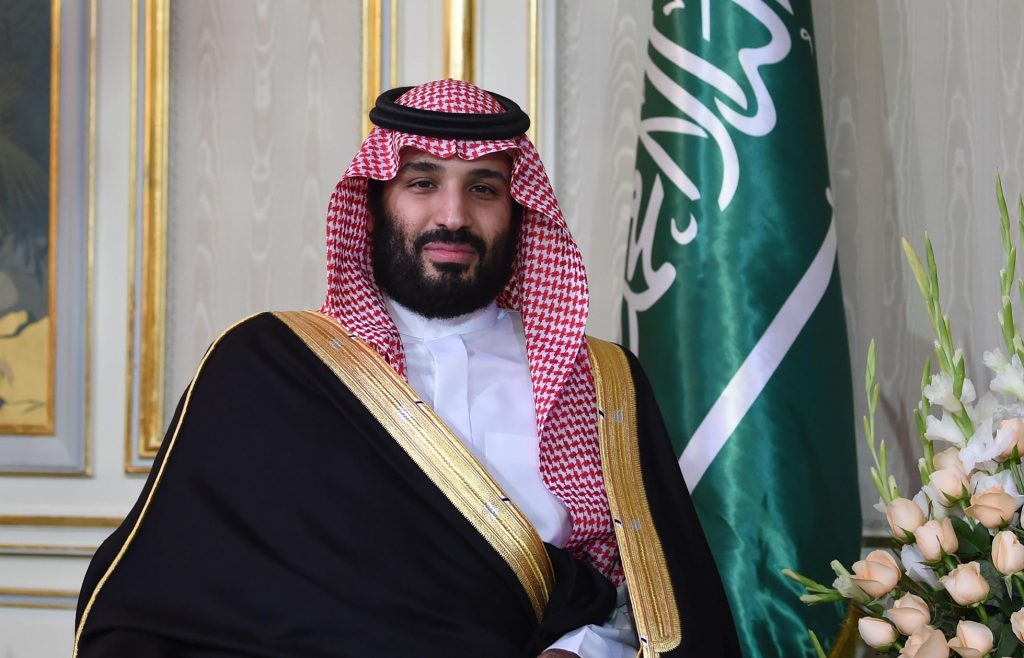Saudi Arabia has unveiled a state-backed AI company called Humain as it continues to invest in transforming the oil-rich kingdom into an artificial intelligence powerhouse. The project will be chaired by Saudi’s crown prince Mohammed bin Salman and backed by its sovereign wealth fund, the Public Investment Fund (PIF).
Humain plans to “operate and invest across the AI value chain” and will be headed up by former Aramco Digital and Rakuten executive Tareq Amin, according to several sources. In December, Amin stepped down from his role as chief executive of Aramco Digital, the tech arm of the state-owned oil company. “This initiative will pave the way for a groundbreaking national AI strategy in Saudi Arabia, and I’m honored to have the opportunity to lead this mission,” Amin wrote in a Linkedin post in December.
Saudi’s sovereign wealth fund announced that Humain will build its own AI tech, push AI tool use in the Saudi economy and “streamline” the kingdom’s data center projects. Humain has pulled staff from several other state-backed projects like Aramco Digital, Saudi data regulator Saudi Data & AI Authority (SDAIA), and Tonomus, a tech unit for Saudi’s new city Neom, according to sources, and Linkedin updates from the staff involved.
Amin, Humain and the PIF did not respond to a request for comment.
The budget of the new project has not been announced but Saudi Arabia has emerged as a big spender on AI and data center infrastructure in recent years. Earlier this year, around $15 billion in deals with chipmakers, cloud operators, and data center companies was announced at the kingdom’s Leap tech conference.
The country launched Humain on the eve of President Donald Trump’s first state visit to the kingdom on May 13. Trump’s trip to Saudi Arabia, the United Arab Emirates and Qatar was expected to kick off a bonanza of investment deals for U.S. tech businesses. “I said I will go if you put up a trillion dollars to American companies,” Trump said of the trip in March.
A slate of leaders from American tech giants including Nvidia CEO Jensen Huang, Amazon CEO Andy Jassy and Palantir CEO Alex Karp were listed as delegates of the Saudi-U.S. Investment Forum being held to mark Trump’s visit. Reuters reported that Elon Musk, Mark Zuckerberg and Sam Altman were also invited to the Riyadh event.
Humain seems to have emerged from the kingdom’s “Project Transcendence”, an initiative reportedly launched last year to help the kingdom rival the United Arab Emirates’s AI investments. Its neighbor, and sometimes rival, got the jump with the launch of its $100 billion state AI fund, which has become a major backer of OpenAI, along with a high-performing LLM from a Abu Dhabi-backed AI lab, and local AI startups that have won backing from foreign investors. Bloomberg had reported last March that Saudi would launch an AI-focused investment fund but Humain has now instead been billed as a “unified operating company.”
Saudi Arabia has over the last decade emerged as a major backer of tech companies as part of its campaign to reshape its economy and break its reliance on fossil fuels. But as oil prices dropped over the last year, its $925 billion sovereign wealth fund has dialed back spending. The country’s new pitch to tech companies encourages them to take advantage of the kingdom’s abundant energy resources and land to build massive data centers for new AI systems.
The kingdom’s sprawling network of state-owned bodies have signed a string of deals with chipmakers like Groq, Cerebras and cloud operators Oracle and Google over the last year. Aramco Digital inked a $1.5 billion deal to build AI inference infrastructure with $2.8 billion-valued chip startup Groq, while Neom’s Tonomus and SDAIA each have announced plans to build their own data center. “No patchwork, no vendors to juggle. Just one full stack, built for scale and ready to solve real problems,” reads Humain’s website, which just features links to a state-developed AI chatbot and chipmaker Groq, which has focused on building chips specifically for AI. (The chatbot also confirmed that Amin is Humain’s CEO.)
Access to AI chips are likely to be a key point of discussion during Trump’s state visit to the Middle East. The UAE and Saudi’s AI ambitions not only hinge on capital but access to the best, and latest, GPUs, but the Biden administration imposed strict export control over fears that these chips could be later smuggled to China. Trump hinted earlier this year that these rules could be relaxed, according to Reuters.

